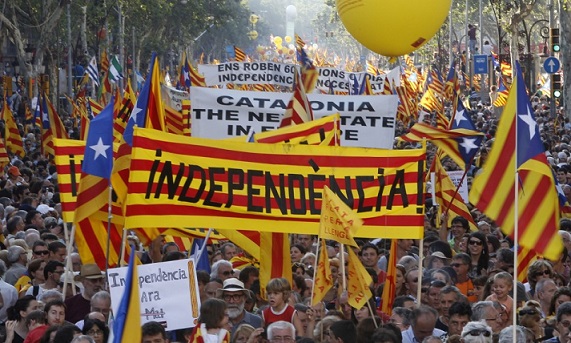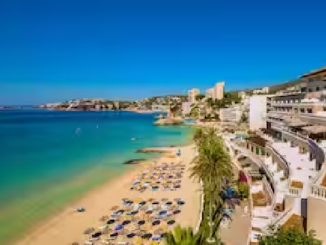
The Spanish government has formally pardoned nine Catalan separatists who were convicted over a failed independence bid in 2017.
The leaders were imprisoned after being found guilty of sedition in 2019. Three others were convicted of disobedience but not jailed at the same time.
The pardons have sparked controversy in Spain and tens of thousands protested against the decision this month.
But the government argues the move will help calm tensions over Catalonia.
The semi-autonomous region’s drive for independence almost four years ago plunged Spain into its biggest political crisis in 40 years.
“With this act, we want to open a new era of dialogue and reconciliation, and end once and for all the division and confrontation,” said Prime Minister Pedro Sánchez in a televised address on Tuesday.
The prisoners’ release may take up to several days, as the pardons must first be signed by the king and published in the country’s official gazette.
The decision did not overturn the prisoners’ ban on holding office and was conditional on them not committing any other crimes within a certain period of time, Mr Sánchez explained.
He said the government did not require those pardoned to abandon their political ideas, underlining that they had been convicted for their actions and not their beliefs.
One of the nine who were imprisoned, Catalonia’s former foreign minister Raül Romeva, remained defiant.
“By pardoning nine people, they will not hide the repression they continue exercising against hundreds of separatists,” he said in a tweet. “We won’t give up the fight: amnesty and self-determination!”
A number of opposition parties have said they intend to appeal against the pardons. The centre-right leader of the Madrid region, Isabel Díaz Ayuso, said that the government’s decision was a humiliation for Spain: “far from bringing harmony, [it] strengthens separatism and social division”.
What happened in 2017?
The ruling separatists in the Catalan parliament declared independence in October 2017, after a referendum which the Spanish Constitutional Court declared illegal.
The Spanish government maintains that Catalonia had no constitutional right to break away, and temporarily imposed direct rule on the region after the government in Barcelona declared independence.
A number of Catalan officials, including the region’s leader Carles Puigdemont, fled abroad.
But others who remained in Spain were put on trial and nine separatists were given prison sentences over their role in the independence attempt in 2019.
How have Spaniards reacted to the pardons?
According to one newspaper poll, more than 60% of people are against the decision, and mass protests were held in the capital, Madrid, earlier this month.
Many argue the decision threatens Spain’s national unity.
Jorge Blanco, an office worker in Madrid, told the BBC the decision was “a way of destabilising democracy and splitting up Spain”, and said he feared it could set a dangerous precedent.
“Perhaps [Prime Minister Pedro Sánchez] feels like he has to do this, because we’ve seen this coming for a long time. But it means that we might see similar independence movements in other areas of Spain,” he said.
Ángel Santos, a petrol pump attendant in the capital, said he believed the nine Catalan leaders should remain in prison: “If they’ve done something wrong, they should serve their sentence just like any other person.”
The country’s Supreme Court has also said it opposes the decision, although its position is not binding.
But in Catalonia, there is anger too.
When Mr Sánchez announced the plans to pardon the leaders in Barcelona on Monday, hundreds of demonstrators outside called for independence from Spain and said the separatists should not have been convicted in the first place.
School teacher Josep Sunyer told Reuters news agency: “It is good because it is a step that the Spanish government has taken, but it falls short because in principle it only lets them get out of prison.”
He added that the decision would not overturn the leaders’ ban on holding public office or offer an amnesty to hundreds of others facing charges over the 2017 referendum.
The independence movement has said the Spanish pardons came as the European Court of Human Rights prepared to consider appeals by three of the jailed leaders.
Catalonia’s exiled former leader Carles Puigdemont said on Sunday that the pardons would not resolve the political problem between Spain and the region.
“The Spanish state will release some political prisoners – who should not have spent a day in prison – before the European justice orders it. But it will do so three and a half years too late.”
Source: bbc.co.uk






Be the first to comment